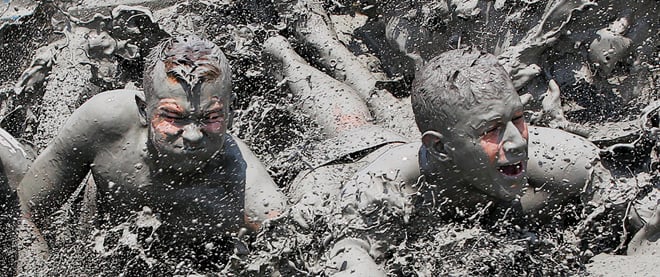Good news, bad news: July 14-21
The U.S. government recognizes Libya’s transitional council, while the Taliban ramps up its campaign of violence in Afghanistan
Ed Reinke/AP
Share
Good news

Corruption crackdown
A federal court judge this week granted the Canada Revenue Agency permission to launch a corruption probe in Quebec. It will examine the books of 176 municipalities, looking for irregularities in the $8 billion in contracts awarded each year to the construction industry. The Quebec government has resisted calls for an inquiry into alleged ties between the industry and organized crime. Perhaps tax officials can get to the bottom of what most Quebecers have long said is a deep-rooted problem.
Time for an explanation
A woman who was viciously assaulted by Russell Williams is suing the ex-colonel—and the Ontario Provincial Police—for damages. Laurie Massicotte was tied up, stripped naked and photographed for hours inside her home, less than two weeks after another neighbour endured a similar attack. At the time, authorities had no idea Williams was the culprit, but police have never explained why they chose not to warn the public after the first assault. Massicotte deserves an answer, and her lawsuit should force the OPP to provide one.
Friendly forces
The U.S. has taken the important step of recognizing Libya’s opposition National Transitional Council as the nation’s “legitimate government authority.” While further isolating the regime of Moammar Gadhafi, the decision may also allow countries like the U.S., France and Italy to unfreeze billions in Libyan funds to support the opposition. For its part, Canada is considering making a line of credit available to the rebels. The question is: will the money come in time to bolster the rebels, who appear to be finally making gains against loyalist forces?
Jolly good sports
It was a great week for underdogs. Five months after their country was devastated by a tsunami and nuclear meltdown, Japan’s women’s soccer team defeated the favoured Americans to win the FIFA World Cup. Meanwhile, Northern Ireland’s Darren Clarke, who at 42 had never won a major golf event, took the British Open. He then did what any self-respecting Irishman would do—embarked on a well-oiled 13-hour celebration. “We partied all night and will probably carry on a couple of days,” he said.
Bad news

Killing spree
The Taliban has stepped up their campaign of terror. In Afghanistan, a bodyguard assassinated President Hamid Karzai’s half-brother Ahmed Wali Karzai, the Kandahar provincial council chief, while a bomber killed five people attending his memorial. A week later, militants killed one of the president’s senior advisers. This week, a gruesome video surfaced showing Pakistani Taliban executing 16 police officers. Amid the carnage, Canada said it would fast-track immigration applications for 550 Afghan interpreters who worked with Canadian troops and now face “extraordinary personal risk.” It’s the least we could do.
Going to the gangs
Winnipeg is in the grips of a gang war that has caused over a dozen firebombings and shootings (including one that injured a 14-year-old boy) in recent weeks. The police appeared to have the upper hand after past crackdowns on the Hells Angels put most of its local leaders behind bars. But the result, it now seems, is a power vacuum that may be behind the escalating violence. In the fight on gangs, it has been one step forward and two steps back.
Limited ambition
It doesn’t say much about the entrepreneurial spirit of Canada’s business grads that for many, their dream job is to become civil servants and collect fat pensions. Universum, a research firm, released a list of the most attractive employers for M.B.A. grads in several countries. The U.S. list is dominated by tech companies, banks and consulting firms. But while Google and Apple made the list for Canadian grads, three of the top five most coveted employers were the federal government, the Bank of Canada and provincial governments.
A turn for the worse
Feeling a bit edgy behind the wheel? You’re not alone. According to a Canadian Automobile Association survey, 75 per cent of drivers believe that fellow motorists are less courteous and more impatient than they were just five years ago. Among the top complaints were road rage, texting while driving, and a complete lack of lane-change etiquette. Thankfully, a Chinese doctor claims to have found the solution: treat bad driving like a diagnosable “disease” and screen people before they get a licence.